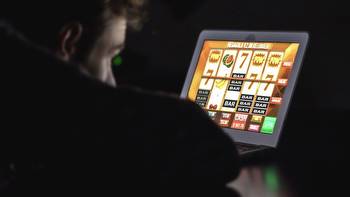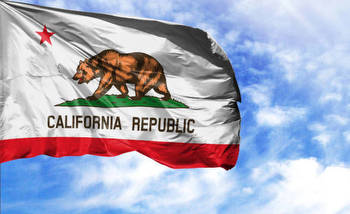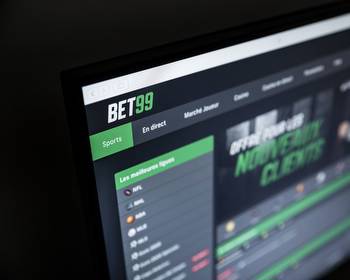America Will Learn to Regret Legalized Gambling

About five years ago, I traveled for work to Las Vegas, where, at the behest of a friend who would almost certainly fit the New York State Office of Addiction Services’ definition of a problem gambler, I collected on a bet. My friend had placed the wager at a somewhat down-market sportsbook the last time he had been in town—a frequent occurrence, from what I gather—but for one reason or another, he was unable to retrieve his winnings in person. “Make sure you get a drink,” my friend told me. “They’re free.”
I didn’t mind doing this favor. The world of sports gambling was almost totally invisible to me, and I now realize that by helping my friend, and listening to his lengthy monologues about the difficulties of accessing private networks also favored by serial copyright violators in order to place quasi-legal wagers with Irish sports-betting websites, I had been given a window into what would soon become a vanished universe.
Half a decade later, the private world of VPNs and off-the-Strip oddsmakers—to say nothing of actual bookies, about whom I never asked my friend—is poised to become as remote as visits to the apartment-complex pot dealers of yore, with their aloha shirts and exotic pets. Sports betting is legal in some 30 states, and 18 allow sports betting online. All of the major sports leagues have “official betting partners,” which dominate television broadcasts; this is especially true of the NFL. Seemingly every other commercial is for a sports-betting app, and pregame and halftime programming is given over to promos for FOX Bet and other services. What had recently been illegal in most of the country—and can still lead to the suspension of players such as Calvin Ridley of the Atlanta Falcons, who is out for the 2022 season after reportedly betting about $4,000 on NFL games—is now an otherwise unremarkable facet of American professional sports.
My question is whether this is a good thing. Who really benefits from the legalization of online gambling? How does sports betting fit into the meta-narrative of progress into which large-scale cultural changes in this country tend to be subsumed?
For all the complexity of recent American history, we generally tell ourselves one of two stories about the transformations our society has undergone in the last century or so. One is a story about deliverance: the struggle of a persecuted minority to secure its ancient liberties. The canonical example is the civil-rights movement, which is understood in these terms by nearly all Americans, but in the decades since, progressives have framed everything, including the repeal of obscenity laws and the legalization of same-sex marriage, in more or less the same way.
The other story involves not the safeguarding of inalienable rights but the ostensibly reluctant acknowledgment that various pervasive social evils (the use of drugs, for example) should be mitigated rather than proscribed. This is how we are supposed to make sense of clean-needle-exchange programs and the distribution of prophylactics in schools; it was also, in the days of “safe, legal, and rare,” the most common account of abortion rights. Although not as sweepingly heroic as civil rights or First Amendment absolutism, harm reduction is nevertheless understood as a triumph of the same essentially humane principles.
In which of these two categories—the enshrinement in law of a basic first-order good or the rueful acceptance of a seemingly ineradicable vice—does the legalization of online sports betting belong? I, for one, don’t see how being able to place a $30 prop bet from the comfort of one’s toilet seat is a civil right, much less how the sordid legislative process that has given rise to legalized gambling is comparable to the generation-spanning struggle to end segregation, for example. Even the most enthusiastic proponents of FanDuel Sportsbook would probably agree with me about this.
Neither is online gambling an example of the other kind of progress, the legal mitigation of a widespread social problem. Libertarians may give the impression that if the people of rural southwest Michigan, where I live, were unable to make $500 instant deposits via the Barstool Sportsbook app, they would be driven straight into the kneecap-breaking arms of Rocco and Moose—assuming they were not already dialing into their home dark-web servers to put some action in at Ladbrokes. But sports gambling—with the exception of familiar March Madness office pools and friendly wagers like the one that led to my shaving my head after the Michigan–Notre Dame season opener in 2018—was not especially pervasive in American society prior to its legalization.
In case it is not clear, I am suspicious of the second kind of narrative about progress. One reason is that the ostensibly disinterested prophets of harm reduction seem almost painfully naive about the extent to which they are lending approbation to the behaviors they see themselves as regretfully tolerating. Whatever one thinks about marijuana, whose risks can no longer be discussed in fashionable circles, I doubt that most supporters of its legalization imagined that in 2022 every billboard on the stretch of I-94 near my small town would feature lurid advertisements for so-called dispensaries with names like Mint Cannabis and Herbana.
Before the legalization of online gambling, the great majority of Americans would go their entire life without being tempted to seek out a bookie or fly to the handful of jurisdictions in which in-person sports betting was permitted. What millions now face are endless deceptive advertisements aired during the most-watched television broadcasts in America, inviting them to risk their money on platforms funded by venture capitalists rather than by organized crime. Many of the commercials I see while watching football promote what are called “risk free” bets, a phrase that should probably fall afoul of various truth-in-advertising statutes. What they mean is that if you bet $300 and win, you will be able to withdraw your winnings (in five to seven days via bank wire or instantaneously if you opt for the platform’s branded prepaid card); if you lose, your forfeited wagers become credits that can be used for future bets. Risk-free bets serve one purpose: ensuring that you continue to make use of the platform.
One bet I would be willing to make is that no matter what misgivings some of us have about it, legal sports betting is not going away. Total wagers are already in the neighborhood of $120 billion, and the Supreme Court’s ruling in favor of online gambling in 2018 is unlikely to be reversed. To shield a tiny portion of the population who engaged in behavior that might once have been considered immoral (or “harmful” as many prefer to put it now) from the worst consequences of their actions, we have exposed many millions of others to an apparently mitigated version of the same hazards, and enriched powerful corporate interests in the bargain. If nothing else, the triumph of online gambling should give us pause the next time we find ourselves invited to make similarly blithe assumptions.
Risk or not, the drinks in Vegas were actually free.



































